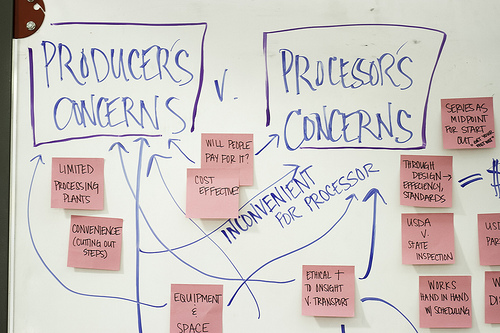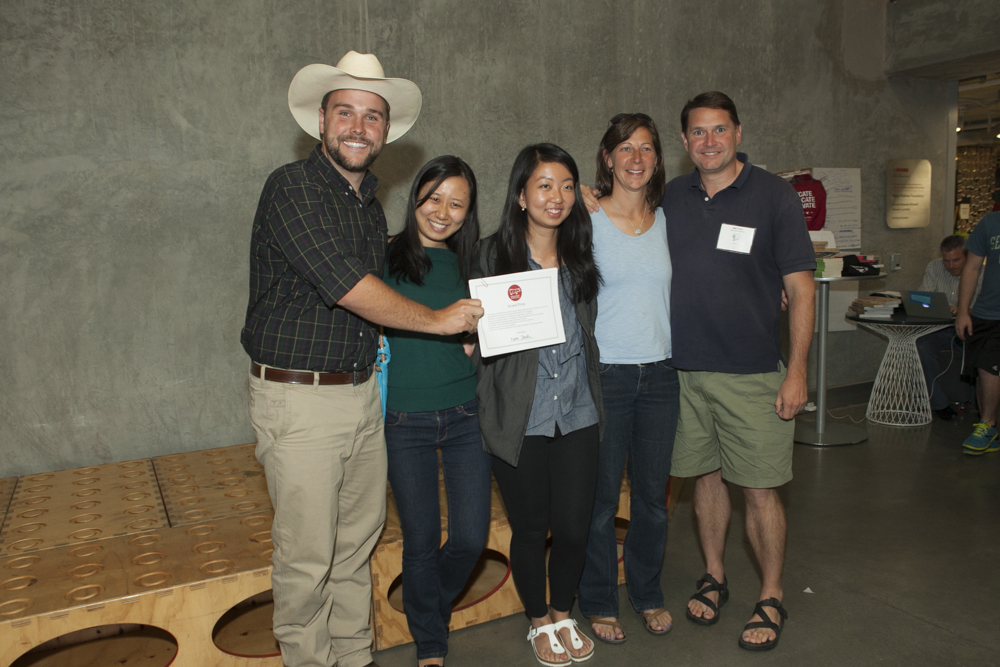Food+Tech Connect’s own Mariana Cotlear hosts a wrap-up of Hack//Meat Silicon Valley on the Heritage Radio Network, highlighting some of the event’s most notable players. Have a listen as Mariana details the impetus for the event and why scaling sustainable meat is key to the future of food.
Grand Prize winning teammates Kevin Watt of Early Bird Ranch and Emily Wang, MBA candidate at the University of Chicago, teamed up with a group of five to create Farmstacker, an “E-Farmony” platform that connects farmers to land and capital and utilizes stacked agriculture. You’ll get a participant’s view of the event, learn how their project gained traction, understand who they hope to reach with their award-winning idea, and get a glimpse at the next steps for Farmstacker.
Kevin describes his personal journey through the hackathon at 7:00: ” It was an overwhelming experience to be surrounded by incredibly smart and talented people from really recognizable industries and companies. At first I felt like a very small fish in a very large pond. As the weekend progressed, it started as a trickle, but we saw more and more people interested in our idea and ready to jump right in.”
He goes into detail on the challenges young farmers face and why he belives Farmstacker will provide a viable resource to help farmers of all generations work together to scale the supply of sustainable agriculture. He eloquently describes the challenges and opportunities at 14:00; “How can we take existing operations which aren’t using the land to its full potential and match them with farmers who have the right skills to propery stack on that land? This provides some really exciting opportunities for farmers to start with a very flexible schedule and small amount of land. They can start piecemeal and build their funding and their credibility.”
Destin Layne of GRACE Communications Foundation, joins in on why Hack//Meat is an important initiative to her organization. She discusses the importance of far-reaching positive messaging surrounding sustainable food production, citing that a lot of people still “aren’t aware of the urgent issues in our food system.” She believes Hack//Meat has bridged a necessary divide between farm and computer, pasture and plate, calling it a forum for “Business, industry and advocacy came together in collaboration, inviting a new [collective] audience to explore urgent critical issues facing our food system and helping them rally together to figure ou how we can create change.”
Hack//Meat facilitator, Mattew Rothe of FEED Collaborative and The Stanford d. school weighs in on how design thinking (an empathy driven process that helps its practicioners identify deep-seated, latent human needs) can be applied to sustainable food production and consumption. He goes on to say that “Our food system is broken in many ways, and we believe design thinking provides a very elegant tool to help move it in a a more sustainable direction.” [47:30]
Listen in to get a meaty glimpse of Hack//Meat from those from those who hacked, c0-presented and facilitated the transformative event.

Behind the scenes look at ideation at Hack//Meat SV Photo Credit: Andre Hermann for Food+Tech Connect



